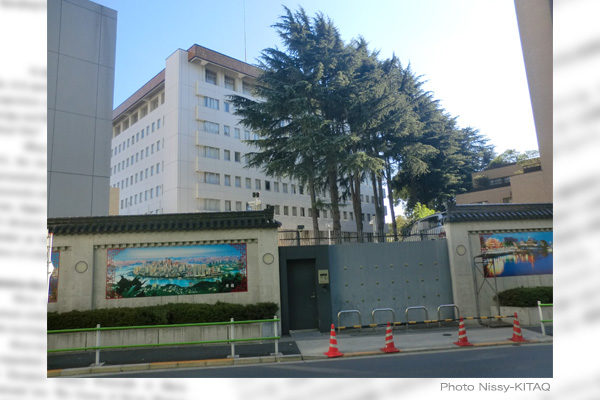After 31 Japanese National Diet members attended the inauguration ceremony of Taiwan’s new President Lai Chingte, Chinese Ambassador to Japan Wu Jianghao in a roundtable discussion at the Chinese Embassy in Tokyo on May 20 said, “Once Japan is tied to the tanks plotting to split China, the Japanese people will be brought into the fire.” In response, Japan’s Chief Cabinet Secretary Yoshimasa Hayashi told a press conference on May 22, “The statement was extremely inappropriate as ambassador to Japan. We immediately lodged a strong protest.”
It’s not a matter of just protesting
This was not the first time Ambassador Wu made a statement of this sort. “We will do our utmost to seek the peaceful reunification (of Taiwan), but we will not promise to renounce the use of force,” Wu said at his first press conference since taking office at the Japan National Press Club on April 28 last year. “Once the country of Japan is tied to the tanks plotting to split China, the Japanese people will be brought into the fire.” (Excerpts from the Chinese embassy’s publication)
At that time, Japan protested against Wu’s statement through diplomatic channels, but the protest had no effect at all, leaving the ambassador to criticize Japan again with the same expression. The statements were carefully prepared based on instructions from Beijing. If Japan limits its action to the protest through diplomatic channels, Wu is bound to repeat the same criticism or escalate further. Japan is underestimated.
Attempting to change the status quo by force amounts to the violation of international law. Which country has said that the use of force is possible for the unification of China and Taiwan? The people of Japan are friendly to the people of Taiwan and sincerely wish them happiness. However, the criticism that Japan is complicit in the division of China is completely unfounded. Wu’s rhetoric is an intimidation against the Japanese people and should be countered by a tougher action than a mere protest through diplomatic channels.
Japan should deport Wu if he refuses to apologize
Based on my experience as ambassador to Switzerland, I believe that one of the most important duties of an ambassador is “promoting friendly relations between the sending state and the receiving state” (Article 3 of the Vienna Convention on Diplomatic Relations). Wu ignored this duty and intimidated the Japanese people by indicating the illegal act of using force. In the event of such misconduct, the receiving state (Japan in this case) may notify the sending state (China) that the ambassador is persona non grata (undesirable person). In such case, the sending state is required to summon the person back or terminate his or her duties (Article 9 of the Convention). In Japan, Foreign Minister Yoko Kamikawa should first summon Ambassador Wu and demand his sincere apology for the statement. If Wu refuses to apologize, Kamikawa should designate him as persona non grata and explain the reason for the designation to the international community. The legitimacy undeniably lies with Japan.
Japan must not just pretend to have “protested” in response to situations like this one, but must be serious, be reasonable and take a firm stand against diplomats like Wu who engages in extraordinary rhetoric.
Etsuro Honda is a member of the Planning Committee of the Japan Institute for National Fundamentals, a former ambassador to Switzerland, and a former special adviser to the cabinet under former Prime Minister Shinzo Abe.


